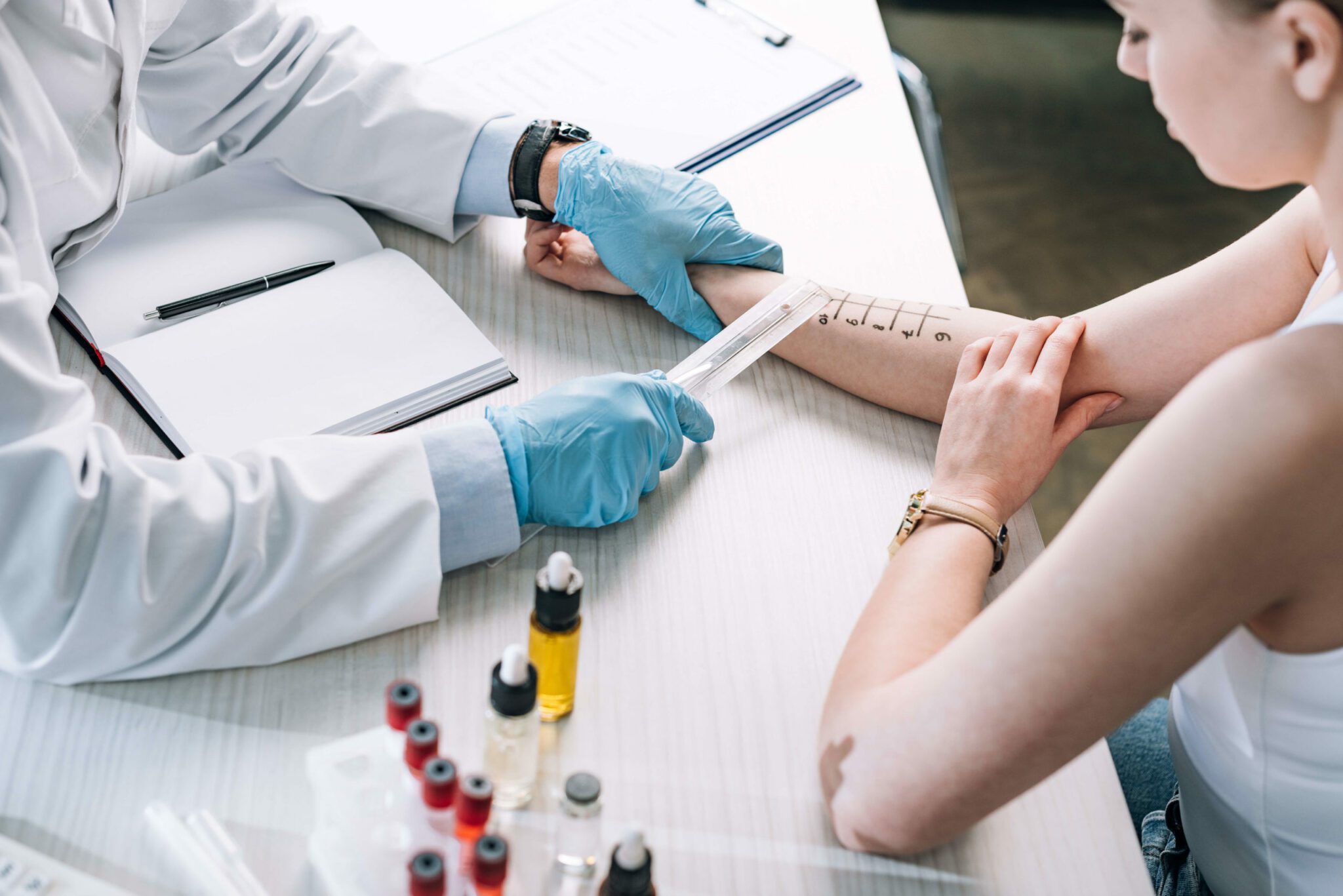When you Should Visit an Allergist

When your child has frequent runny noses, constant sneezing, or a tummy ache after eating certain foods, it can be tempting to dismiss these symptoms as just an allergy. In most cases, allergies are a minor annoyance without lasting health consequences. However, as the incidence and severity of allergies increases worldwide, it’s a good idea to take any evidence of allergies seriously and know when it’s time to bring it up to a doctor or get an allergy test.
Seasonal allergies to pollen and seeds commonly cause red, itchy eyes, sneezing and a runny nose, and can be asthma triggers. If your child has severe allergic symptoms that interfere with his ability to be outside or go to school, you should talk to your child’s pediatrician about allergy testing. If a simple blood test is positive for allergies, or if further testing is needed (such as skin testing), a visit to an allergist is in order. A pediatric allergist can help to diagnose the type of allergies your child is dealing with and administer the most effective treatment.
Food allergies can also warrant a visit to the allergist. Like all allergies, food allergies occur when your child’s body has an inappropriate reaction to a harmless protein. Instead of recognizing the protein as harmless, the body “sees” it as an invader, like a virus, and triggers an immune system response.
Food allergies can be potentially very serious, triggering a medical condition known as anaphylaxis, so an allergist can help identify the specific trigger foods. Once the offending foods are figured out with special allergy testing, you can eliminate them from your child’s diet.
Skin allergies may be caused by contact with an allergen like laundry soap or by food sensitivities. Some cases can lead to eczema, which, if severe, is best treated by an allergist. Treatment may consist of simply using a special cleanser and lotion or may involve steroid treatment.
Hives can also be caused by contact allergens, food or even insect bites. It is a good idea to see an allergist if your child gets hives frequently or if they last for longer than six weeks, no matter what you suspect as the cause.
After the initial reaction has been treated, make an appointment with an allergist for diagnosis of the exact cause of the reaction, as well as proper treatment to avoid serious reactions like this in the future.
Reviewed by Dr. Kristie Rivers, November 2018
Sources:
- HealthyChildren.org. Infant Allergies and Food Sensitivites.
- ACAAI
- Children’s Allergies.
- Healthy Children.org
- Seasonal Allergies in Children.
- Miami Children’s Hospital
- Should You See an Allergist.
Powered by Bundoo®










